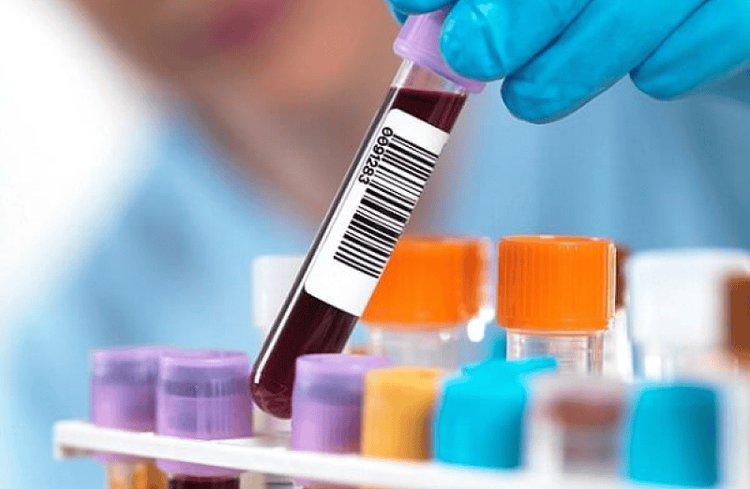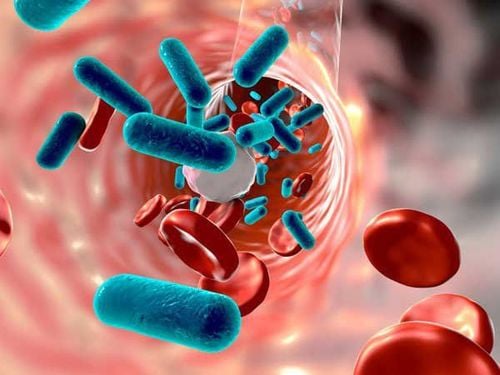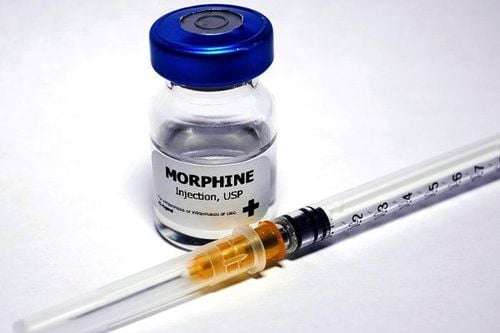This is an automatically translated article.
1. Causes of infection in people with cancer
Infection is one of the most common complications of cancer and cancer treatments. This is because cancer, as well as its treatments, can gradually weaken the body's immune system.Normally, the immune system is a group of organs, tissues, and cells that work together to fight infection. Infection is caused by bacteria entering the body, multiplying and causing disease.
Some infections can spread to other parts of the body, even life-threatening if not detected early. Here are the common types of germs that can cause an infection, including:
Bacteria Viruses Protozoa (some act like parasites) Fungi In fact, some species themselves Cancer can also increase the risk of infection. Therefore, the patient is obliged to treat his cancer. Once the cancer cells are removed and the treatment is over, the risk of infection is greatly reduced.

In addition, infections that develop in people with cancer or undergoing cancer treatment can also be more severe than in otherwise healthy people. Furthermore, the infection also makes the cancer more difficult to treat. If you have cancer, it's best to closely monitor, detect, and treat infections early before they become more serious and spread.
Trắc nghiệm: Thử hiểu biết của bạn về bệnh ung thư
Ung thư là nguyên nhân gây tử vong hàng thứ 2 trên thế giới. Thử sức cùng bài trắc nghiệm sau đây sẽ giúp bạn có thêm kiến thức về yếu tố nguy cơ cũng như cách phòng ngừa bệnh ung thư.
Bài dịch từ: webmd.com
2. Body parts most susceptible to infection
Here are the most common sites of infection in people with cancer, including:Skin and mucous membranes (inside the mouth, vagina and intestines) Digestive system (mouth, esophagus, stomach and intestines) ) Lungs and airways (sinus and throat) Urinary system (bladder and kidneys) Nervous system (brain and spinal cord) Skin and tissue around the central venous catheter (CVC).

3. Factors that increase the risk of infection
*neutropenia : some cancer treatments, such as chemotherapy, radiation therapy, stem cell transplant, or bone marrow transplant can lead to neutropenia (a component of neutropenia). part of white blood cells in the blood). This means that your immune system has become weaker, and your body is not able to fight infections as effectively as it should.
*Drugs: steroids, for example, can weaken your immune system, and increase your risk of infection.
*Some types of cancer: such as those that affect the bone marrow, or those that have spread to the bones, can increase the risk of infection.
*Mucositis: is irritation or pain of the lining of the digestive tract. Patients with this condition are often prone to mouth sores caused by infection.
*Some chronic diseases: such as diabetes, chronic obstructive pulmonary disease (COPD), or autoimmune disease.
*Other factors: such as poor nutrition, stress or lack of sleep.
4. Signs of infection in people with cancer
Signs and symptoms of infection in patients with cancer include:High fever Chills or sweats Sore throat Sores or white coating on the tongue and in the mouth Cough or difficulty breathing

stuffy nose Burning or pain when urinating, bloody or cloudy urine Red, swollen, draining, or hot urine at the site of an injury, surgical wound or any area of skin, including the genital area and rectum. Pain or tenderness in the stomach and abdomen Stiff neck Sinus pain, ear pain or headache Fever is considered the first sign of infection in people with cancer. For patients with leukopenia, there may be no other symptoms of infection, except fever. To check your body temperature, you can use a thermometer or ask your doctor for help. Absolutely do not arbitrarily use any fever-reducing medicine without a doctor's prescription in advance.
If an infection occurs, you should immediately go to a medical facility for diagnosis and treatment as soon as possible. This will greatly reduce the risk of the infection spreading to other parts of the body.
5. How to control and treat infection
*Identifying the cause of infection: this is an important first step in controlling the risk of infection for cancer patients. Most germs take advantage of the weak defenses of the immune system to invade and cause disease. Knowing exactly what causes an infection makes it easier for doctors to make treatment options for patients.
Several types of tests can help your doctor diagnose the cause of an infection, such as a urinalysis, a blood test, a viral antigen test, a gram stain test, or a fungal culture test. identification implant. These types of tests can pinpoint the exact type of virus or bacteria causing the infection.

*Medication: Initially, antibiotics will be prescribed to treat infections. However, treatment can change once the patient has done diagnostic tests and it is clear which agent and drug will work best in the treatment.
Infections in cancer patients are often treated according to the germ that causes them. Some commonly used anti-infectives help prevent or treat infections, including:
Antibiotics used to treat bacterial infections Anti-fungal drugs used to treat fungal infections Antiviral drugs used to treat viral infections Antiprotozoal drugs to treat protozoa infections *Treatment of bacterial infections: when treating bacterial infections in people with weakened immune systems , some antibiotics will be the first choice, especially when the doctor is not sure exactly what is causing the infection. These drugs are usually broad-spectrum antibiotics. In addition, patients can also use several different antibiotics at the same time to treat the infection.
However, there are some bacteria that are resistant to drugs, because they no longer react to the antibiotics that have killed them before, such as Staphylococcus (staphylococci) strains.
Therefore, the overuse of antibiotics is not an effective method when treating infections. At that time, you should consult your doctor to change to a more powerful drug.

6. Measures to help prevent infection in cancer patients
To prevent the risk of infection, cancer patients should note the following:
Clean hands, feet and teeth regularly Disinfect the wound to avoid infection Apply an appropriate diet suitable, balanced, pay attention to drink a lot of water Get enough sleep and exercise regularly Take medicine exactly as prescribed by the doctor about the dose and time to take the medicine Vinmec International General Hospital is one of the hospitals not only ensure professional quality with a team of leading medical doctors, a system of modern technological equipment. The hospital provides comprehensive, professional medical examination, consultation and treatment services, with a civilized, polite, safe and sterile medical examination and treatment space.
Please dial HOTLINE for more information or register for an appointment HERE. Download MyVinmec app to make appointments faster and to manage your bookings easily.
Articles refer to the source: cancer.org













